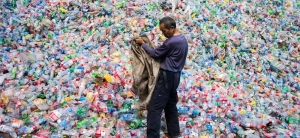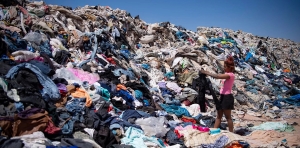Humanity represents just 0.01% of Earth’s biomass, but has destroyed 83% of wild animals
Earth’s 7.6bn humans account for just 0.01% of all living things, yet since the dawn of civilisation we have been responsible for the loss of 83% of wild animals and over half of all plant life. A recent biomass study conducted at the Weizmann Institute of Science in Israel has revealed humankind’s tiny part in life on Earth, but our unparalleled role in its extinction.
There has been a longstanding and deep-rooted misconception that humanity is significant over all other life on Earth. Somewhere along the line we decided that we are the planet’s most important species and we have generally been operating under that assumption ever since.
For millennia, humans and other mammals lived side-by-side in innocuous synergy, but relatively recent history has completely reversed and significantly worsened our impact on nature. The industrial revolution sparked mass manufacturing models that are still in place today, except in higher numbers and in more locations. This was the start of serious anthropogenic pollution – a man-made phenomenon that has since been rapidly intensifying. Humankind’s impact on Earth is now so profound that scientists have declared a new geological age – the Anthropocene – the age of single-use plastic pollution, nuclear testing and factory farming.
Whilst the Anthropocene may have stimulated wealth amongst the global elite, as well as some potentially helpful phenomena such as globalisation, it has done so at the detriment of the natural world. And, as we witness the irreparable disappearance of the last pristine wilderness or the last endangered species, we must question the cost of so-called modern civilisation.




